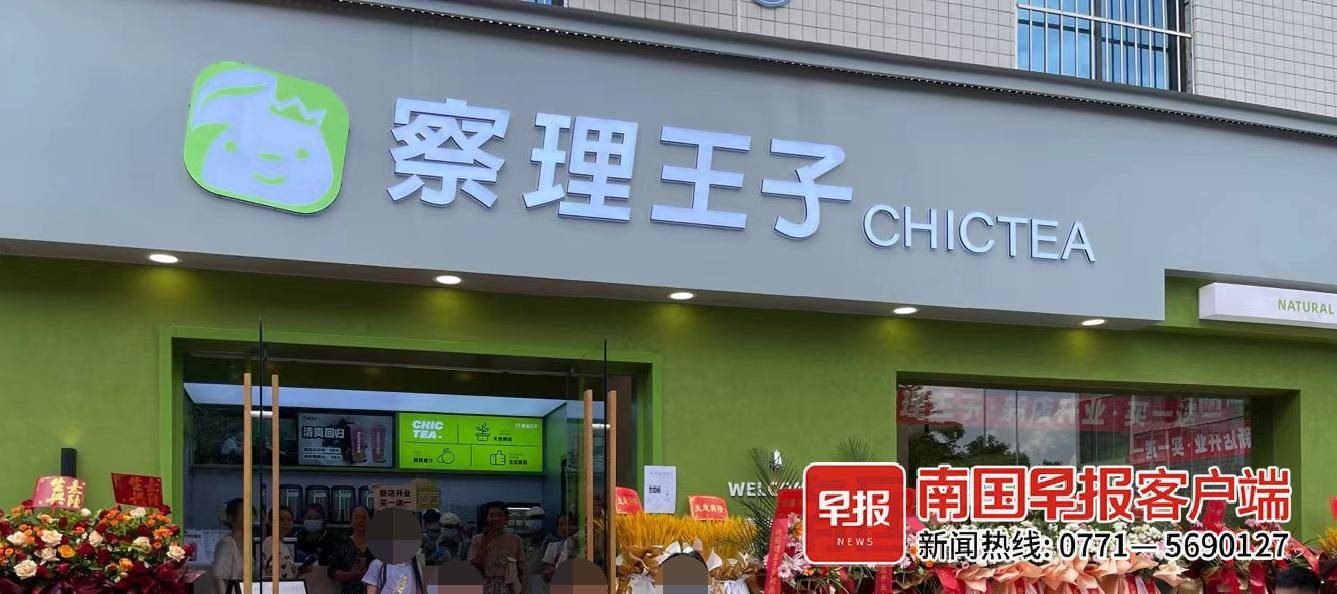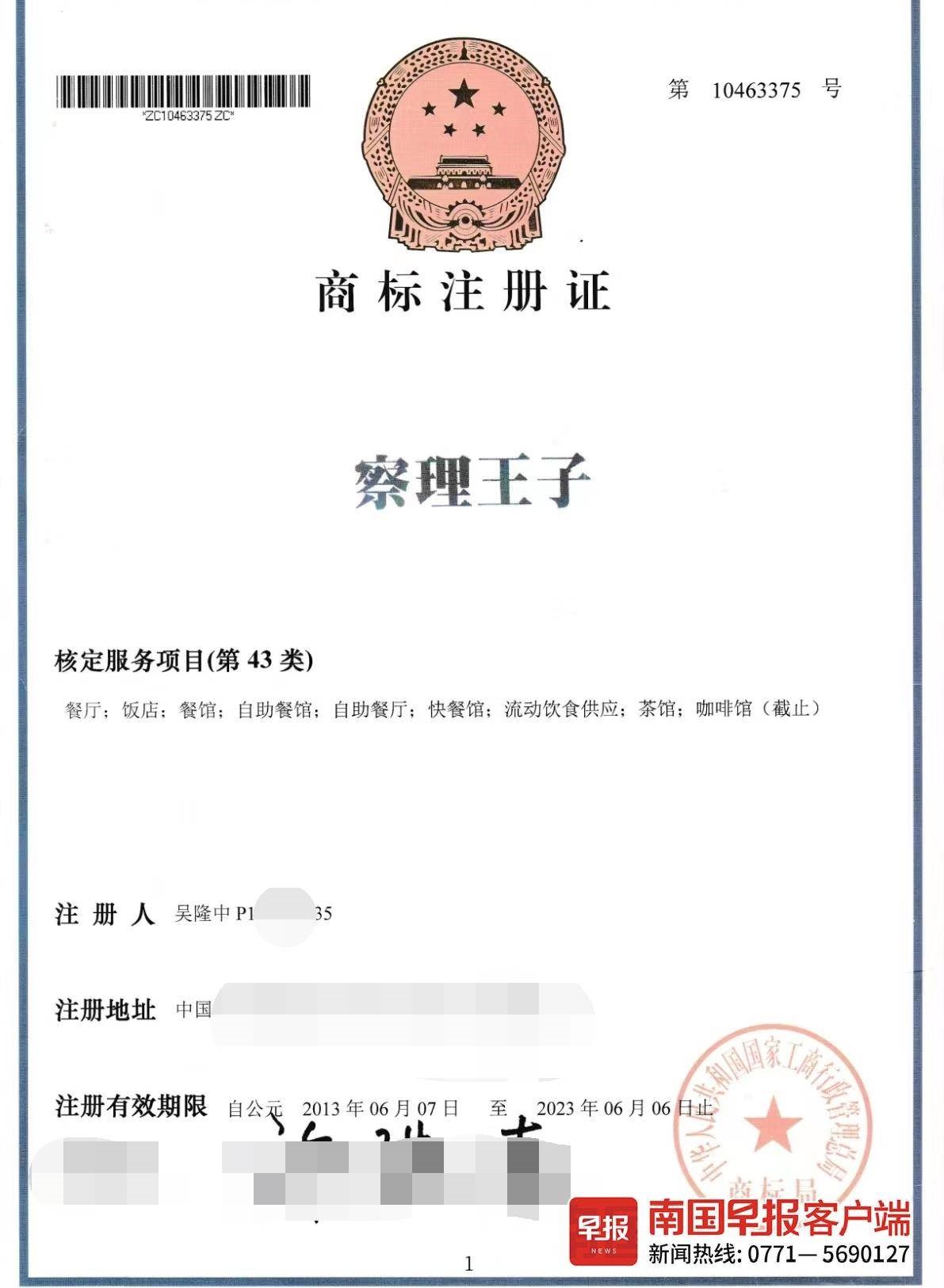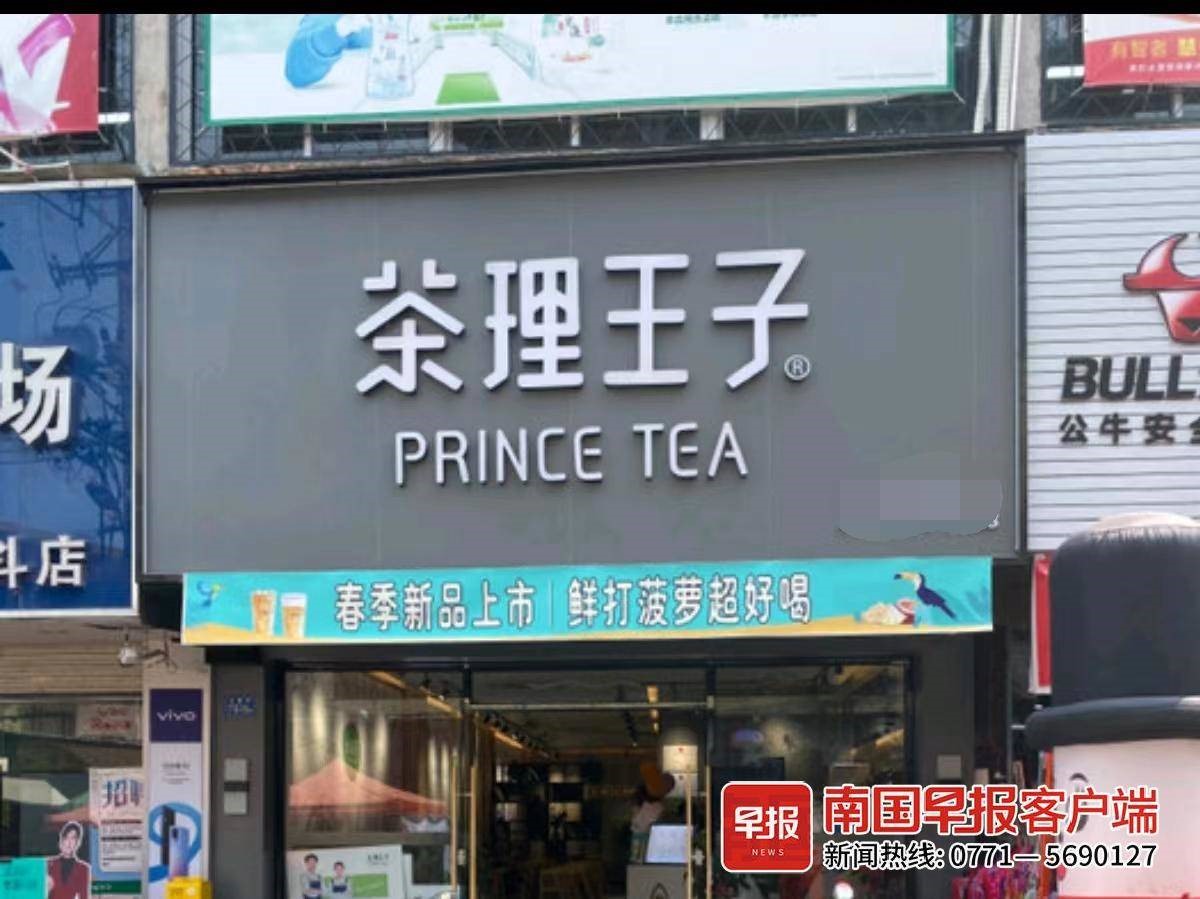

 HOME - NEWS
HOME - NEWSCHICTEA and PRINCE TEA are both specialized in tea-beverage, with only one word difference in their names. Which is the real one?
On August 7, Nanning CHICTEA Catering Co., Ltd. received the first instance judgment from Shenzhen Intermediate People's Court, which ordered PRINCE TEA, the brand owned by Jiangxi Jinchu Catering Service Management Co., Ltd., to compensate CHICTEA for economic losses totaling 8.908 million yuan.
PRINCE TEA model copied by CHICTEA?
It is understood that as a milk tea chain brand, CHICTEA founded by the Wu Longzhong in 2012, and applied for trademark registration in the same year. In June 2013 it was approved, and have been had more than 600 franchise stores in Guangxi, Guangdong and other places.

▲Nanning CHICTEA Catering Co., Ltd. has the exclusive right to use the trademark.

▲CHICTEA Trademark Certificate
Around 2018, CHICTEA 's franchisees reflected that PRINCE TEA imitated the business model of CHICTEA. At that time, there were some Jiangxi merchants wanted to join CHICTEA. However, they coincidently found that there also existed the same brand pronouncing as CHICTEA. Chen Ronghui, general manager, introduced to the South China Morning Post reporter that after comparison, PRINCE TEA not only has a high degree of similarity in terms of text composition, address, etc., but also in the decoration of franchise stores. CHICTEA repeatedly asked PRINCE TEA to stop the infringement, and filed an invalidation application in September 2018.
Trademark CHICTEA Is Ruled Invalid in Catering
On October 22, 2019, the CNIPA identified that PRINCE TEA was similar to the registered one in regard with text composition, address, etc., and that designated uses in relative categories was analogous, easily leading to misidentification. Therefore, it declared PRINCE TEA invalid for use in restaurants, cafes and other services. Jinchu Company filed a lawsuit. On October 18, 2021, after the first instance of Beijing IP Court and the second instance of Beijing Higher People's Court, the original ruling was upheld.

▲PRINCE TEA Shopfront
During this period, Jinchu company still continues copying. It still attracted franchisees with fee far lower than CHICTEA's after trials, leading to CHICTEA's developing difficulty in Guangdong, Fujian, Jiangxi and so on. CHICTEA believed that what Jinchu company has done has caused infringement, so it sued the court, requiring it to bear the liability.
CHICTEA awarded ¥8,908, 000
In response to charges, Jinchu Company argued that PRINCE TEA trademark obtained from others with distinct design. There was no intention to piggyback on its popularity. In addition, Jinchu Company has won many honors for its operation. After trademark was declared invalid, it has redesigned its logo.
The court considered that, as anoperator, Jinchu Company, knowing that CHICTEA has a certain popularity, still used the similar logo in sales and promotion. It will cause consumers to confuse the service sources, or think related, thus constituting an infringement on the exclusive right.
In summary, on August 4, the Shenzhen Intermediate People's Court made a first-instance judgment and sentenced Jinchu Company to pay 8.856 million yuan in compensation and 52 million yuan in reasonable costs for safeguarding rights.
Qin Yuanxiang’s of Guangxi MIN ZU LAW FIRM represented the case. The reasons why this case approached the highest compensation of Guangxi enterprises IPR protection are mainly three. First of all, the plaintiff insisted on rights protection. From trademark invalidation in 2018 to the first-instance judgment in 2023, it has gone through five years, never giving up. Then, improving evidences effectively proved the number of the defendant's franchised stores and costs, recognized by the court of first instance. The last but not the least, to prove the defendant has intention. In August 2015, the plaintiff Shenzhen franchisee opened. Two months later, the defendant trademark applied in Shenzhen with imitation of Lipton, another well-known trademark. In this way, the plaintiff requested punitive damages, which indirectly promoted the higher amount of damages awarded.
Professor Chen Xing, deputy dean of the Law School and IP School of GXUN, suggested that the case effectively protects consumers' right to know and choose brands. First, CHICTEA has a certain market popularity, and the logo of PRINCE TEA is similar to it, resulting in confusion and consumers' right infringement; Second, it combats counterfeiting and protects the exclusive right of trademarks. CHICTEA and PRINCE TEA have analogous pronunciation and word composition, both used in catering field, which is easy to mislead the public. This judgment is conducive to deterring such behavior; Third, it benefits creating a sound business environment and strengthening IP protection, allowing the public to experience the enforcement efforts and enhancing the confidence of market players to build their own brands with national influence.

![]()

![]()
MESSAGE